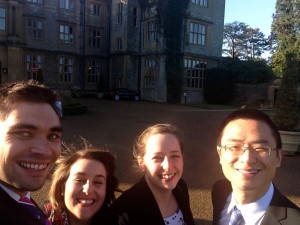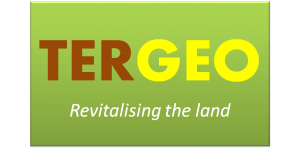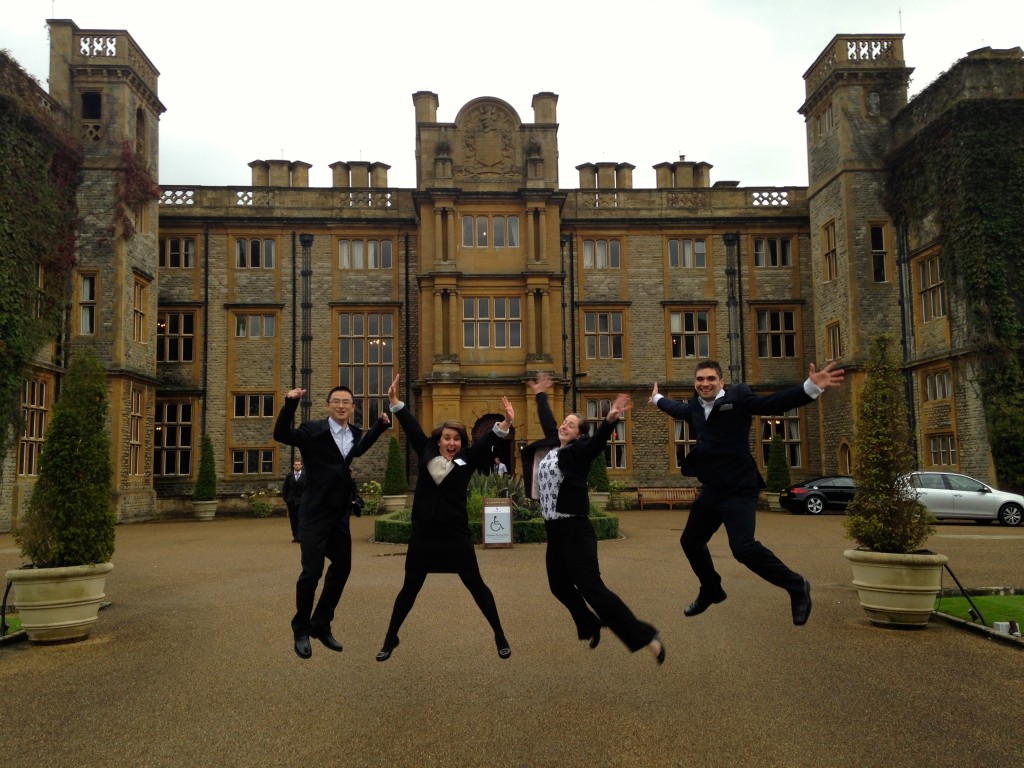Last week, Megan and I were away in Oxford taking part in a National Environmental Research Council (NERC) sponsored young entrepreneurs competition. The competition is called, EnvironmentYES! (Think Dragon’s Den!). In the competition, teams of early-career researchers (PhD students and post-dcos) attend a three-day workshop where they are given training and guidance on innovation and how to commercialise research. At the end of the three-day workshop, teams present and pitch their ideas for an imaginary environmental start-up company in competition with each other. The winning teams from each workshop are invited to a final where they compete for a prize of £2500.
In the competition, teams of early-career researchers (PhD students and post-dcos) attend a three-day workshop where they are given training and guidance on innovation and how to commercialise research. At the end of the three-day workshop, teams present and pitch their ideas for an imaginary environmental start-up company in competition with each other. The winning teams from each workshop are invited to a final where they compete for a prize of £2500.
Megan and I are part of a four person team taking part in the competition. One of our fellow PhD students in the school, Steve Hicks, approached us towards the end of the summer, to see if we fancied having a go at the competition. We both agreed to do it as it was an opportunity to learn about the business world, which we knew little about. Lidong Bie decided to join our team, and so we could get to work! This kick started a few months of preparation for the workshop in Oxford last week.
The first thing we had to do was decide what our product was going to be. We had LOTS of ideas: some quite sensible, whilst others where a little out there. Eventually, we managed to narrow it down to three ideas: using pea straw for the remediation of contaminated land, developing a service to monitor seismicity associated with fracking activities and the monitoring of air quality by measuring magnetic particles on tree leaves. Two of our ideas were based on already published research, which you can read all about here and here. As it is a business competition, we had to assign ourselves roles within the management of our fictitious company. Steve took on the role of CEO, Lidong became our finance man, Megan is in charge of marketing, whilst I am our research and development officer (i.e, I’m in charge of the science).
Steve approached The University Graduate School, Management School and Technology Transfer Services, all of whom have provided us with lots of help in preparing for the competition. During our first meeting with them, we ‘pitched’ our three ideas (note how I am already slipping into my newly acquired business and commercial vocabulary). When starting a business, as we quickly found out, the idea is important, but not as important as identifying who has a need for the product/service you are offering, i.e. what and who make your market? This was something we thought about a lot when deciding which idea to go with. With the fracking and air quality monitoring ideas we just couldn’t really see who would buy our services/products and so in the end, we settled with remediating contaminated land using pea straw; and so team TERGEO was born.
Having chosen our idea we had to formulate it into a viable, appealing and realistic business proposition. I got on with really understanding the science behind the idea and explained to the team how the world of environmental consultancy worked (as I worked as a consultant before I started my PhD). Megan worked hard on identifying who are customers and competition would be. Lidong had the arduous task of getting to grips with endless financial spread sheets and costing up both our site works and overall business running costs. Steve coordinated all the work and researched how we could ‘protect our idea’. Intellectual property and how you can protect ideas, products and know how is fascinating and at the same time, extremely complex.
All our hard work culminated last week, when we attended the workshop in Oxford. The first two days were dedicated to learning more about how to set-up your own business, receiving help and support from a wide range of mentors and hearing from people who have actually gone on to set up their own company (some as a result of participating in the competition). The final day of the workshop saw all the teams go up against each other in front of a panel of ‘investors’. We had to deliver 15 minute business presentations, to compete for the judge’s investment in our company. Our team was put into the first stream (of two), and we competed against five other teams. Some of the ideas pitched by other teams were incredibly interesting: tents with built in solar panels, an app that worked out what the most eco-friendly products available in a supermarket are, a chip that monitors your UV exposure, a pressure driven turbine that generates power from the main water supply and a solar panel with a kick! Teams fielded questions from the investors really well and people were so enthusiastic about their idea and business!
The judges verdict was announced at 3pm on Friday afternoon, to a room packed full of expectant participants and mentors. Team TERGEO are super excited to announce that we made it through the regional finals and are now on our way to Grand Final in London on 2nd December! Watch this space!
Acknowledgements
We couldn’t have got as far as we did in the competition without the help of our mentors. So a big thank you to:
Dr. Dale Heywood, Director of Entrepreneurship studies at the University of Liverpool
Dr. Richard Hinchcliffe, Head of Postgraduate Development at the University of Liverpool.
Dr.Lisa Ahmead, Partnerships and Innovation, Business Gateway, University of Liverpool
Andrew Bowen, ISIS Innovation
Luca Guerzoni, Esperimenta
Becky Herbert, Alan Garmonsway, Emma Faldon, The Pirbright Institute
Bevan McWilliam, RVC Enterprise




Leave a Reply